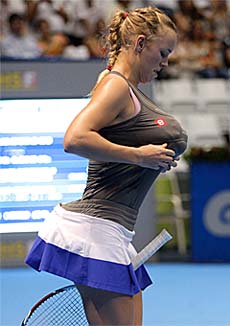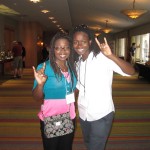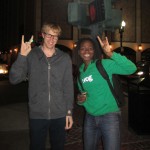From Sociology Graduate Students, Faculty and Staff:
When I am confronted with a difficult task or an academic challenge that seems insurmountable, it really helps me to think of all the previous objectives that I achieved that seemed impossible at the time.
Daily exercise first thing in the morning at least an hour of it.
My best tip, for perfectionists:
The best paper is a done paper.
My second best tip:
Nothing is more important than exercise and eating.
My biggest suggestion is to get enough sleep, especially before exams. Making time for sleep is as important as reviewing your notes and way more important than checking Facebook. If you have time for social media, you have time for sleep.
Give random grades according to the sounding of students’ last names
Answer all students’ mails with a poem
Stop checking email after 11 AM
Quit reading sociology texts-articles (I stopped doing that a while ago anyway)
Invite graduate students to drink and drink and drink
Drink with spouse
Drink alone
Taking Comps in October, and only having pass/fail classes definitely makes for a healthier end of semester 🙂
Take walks, breathe and use all your senses to feel alive. Hum, sing or dance when the mood strikes. Take time to be alone, quiet and open every day and get away for a day or two by yourself every season, if possible.
Cross dress every Wednesday at 9 pm.
Nothing like a cold beer in your hand and a warm dog at your feet to put things in perspective
Believe me, you don’t want my tips!!!!
Stop in the middle of the day and make sure you have a proper lunch. Also, go outside even if for 10 minutes. Repeat the mantra: there is light at the end of this tunnel!
Therapy
The truth is what keeps me sane during the holiday break is doing something I’ve never done before. The holiday break (exams, papers, dissertation chapters, grants) can get SO hectic. And people always seem to be forcing smiles on your face because it’s a cheerful time of year. Why not turn that forced smile into an actual real dazzling smile by trying something new? For example, I am running a 5K on Saturday and I’m taking burlesque and pole dancing classes everyday for the entire months of December and January. Though I’ve got tons of stuff to do, I’m always really excited about the next day and the new spin, grip, or twirl I’m going to learn in class. That way I come to school with a smile even when students drive me crazy!
Refuse to take your profession seriously, ask your colleagues provocative questions like: Can “hot” and “demography” can be used in the same sentence? Propose a panel: “Carnal Accounting. On the libidinal vagaries of an emerging sizzling profession.”
Tip for Staying Healthy:
1. This time of the semester invariably involves early mornings and late nights. With Texas being such a temperamental state in terms of the weather, it’s important to be prepared for any and all weather conditions. Check the weather before you go out: a sunny morning could easily turn into a chilly evening, and exposure to large temperature changes are an easy way to get sick. Whether on campus or at a coffeehouse, make sure you have the proper clothes to stay warm.
2. In an ideal world, you would be able to finish the semester while still making yourself nutritious and delicious foods in the comfort of your own home. Unfortunately – and in the “department of things you already knew”, especially if you’re a sociologist – this is not an ideal world. However, still make an effort to eat healthy by avoiding heavy amounts of fried or fast food. Make that extra effort to incorporate fruits and vegetables into your diet by packing them as snacks. Try to snack healthily and often while you study so you can avoid both the binge of fast or processed foods when you’re absolutely starving as well as the “food coma” that may come after a big meal (which will be sure to put a cramp in your productivity)
Tips for maintaining sanity:
1. Make small goals that you can meet on a daily or weekly basis. Parcel out your big projects so they don’t seem so big.
2. Solidarity! Everyone feels the crunch of the end of the semester, from the neophyte freshman to the overworked graduate student to the harried professor. Lean on your fellow academics, and let them lean on you as well. Misery indeed DOES love company.
3. Own a pet! Not only are they endless sources of affection and adoration, but consider this: your pet does not care HOW you did on that exam nor does he care if you met the deadline for NSF funding. They love you regardless.
4. And on a related note, remember: the anxiety and stress you feel is self-produced and socially constructed. We put expectations on ourselves (often deriving from social expectations, or expectations others have of us), internalize these expectations, and then discipline ourselves when we fail to meet these. That’s all well and good to a point, but it’s equally important to give yourself self-compassion. Your grades, your funding, your publication count: these things do not affect or reflect the quality of person you are or your worth as a human being.
Sit in the sun. Hug a cat. Go for long walks. Bake. 🙂
I am glad to study here. People are friendly to international students. I learn a lot not only from classes but also from people I meet.
I still struggle for English. I did not do well as I expect this semester. However, I keep trying. I think it will get better. I often take a walk alone. I love autumn here. Immersing in sunshine and beautiful nature helps to release depression. I also like to jog, which helps to refresh my brain.
Beyond the lots of great and helpful things listed below, a couple of others:
Spend time with people not in academia.
Talk about something totally unrelated to sociology with your friends. If this is hard for you, play board games or darts at a bar.
Make the bed every day. An uncluttered room is an uncluttered mind.
My tip is to listen to 90s music.
Eat Clementines. Take a three-minute dance party break to your favorite song. Do yoga. Don’t sacrifice sleep. Spend time with people who make you grin. Study near a window. Remember that our work always gets done, and that school is only one part of what defines us as human beings. Reflect upon and revel in what makes your life wonderful!




